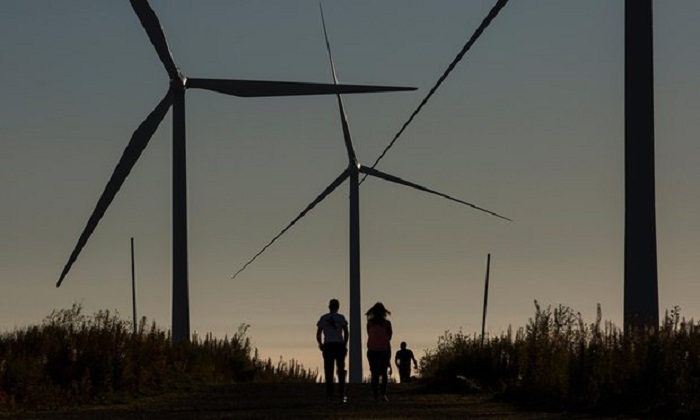Wind power key to curbing greenhouse emissions

Edinburgh University researchers studied National Grid figures for power generated by sources including wind, coal and gas between 2008 and 2014.
They said the study is the “most accurate of its kind to date” as it uses real, rather than estimated, energy output figures, detailing figures for every half hour.
The university claimed the study suggests UK government figures “underestimate” carbon savings from wind turbines by 3.4m tonnes. The study also claims the method used by the Scottish government “overestimates” the savings.
Researchers said their findings support building more windfarms in the UK to help cut carbon emissions and reduce climate-change impact.
They said the study suggests wind power could play a key role in meeting the UK’s future energy needs and the methodology used could be applied to give accurate estimates of possible future emissions savings.
The study’s leader, Camilla Thomson, said: “Until now, the impact of clean energy from windfarms was unclear.
“Our findings show that wind plays an effective role in curbing emissions that would otherwise be generated from conventional sources, and it has a key role to play in helping to meet Britain’s need for power in future.”
The analysis, published in Energy Policy and supported by the Engineering and Physical Sciences Research Council, was welcomed by WWF Scotland.
WWF Scotland’s director, Lang Banks, said: “It’s great to finally have an independent and authoritative study that puts a more accurate figure on the massive amounts of climate-damaging carbon emissions being avoided thanks to wind power.
“We’ve long known that wind power and other renewables were making a major contribution to reducing carbon pollution, but it’s fantastic to learn more clearly just how huge that contribution is.”
A Scottish government spokesman said: “With 34% of the UK’s wind power generated in Scotland, this [study] reinforces the crucial role of both on and offshore wind in meeting our international climate change obligations.
“It is particularly significant that the study is reported to suggest that a greater investment in wind energy could help meet Scottish and UK government targets for carbon emissions reduction.
“This is a key message we have also been directing to UK ministers and one that they should heed, especially in the context of wind energy being amongst the cheapest electricity sources available.”
A spokesman for the UK government’s Department for Business, Energy and Industrial Strategy, said: “We have made a firm commitment to a low-carbon future, and our recent ratification of the historic Paris agreement shows we are serious about global action on climate change.
“Nearly £52bn has been invested in renewables in the UK since 2010, and just last month we reiterated our commitment to spend a further £730m per year supporting new renewable projects over the course of this parliament.”























-1745485667.jpg&h=190&w=280&zc=1&q=100)























